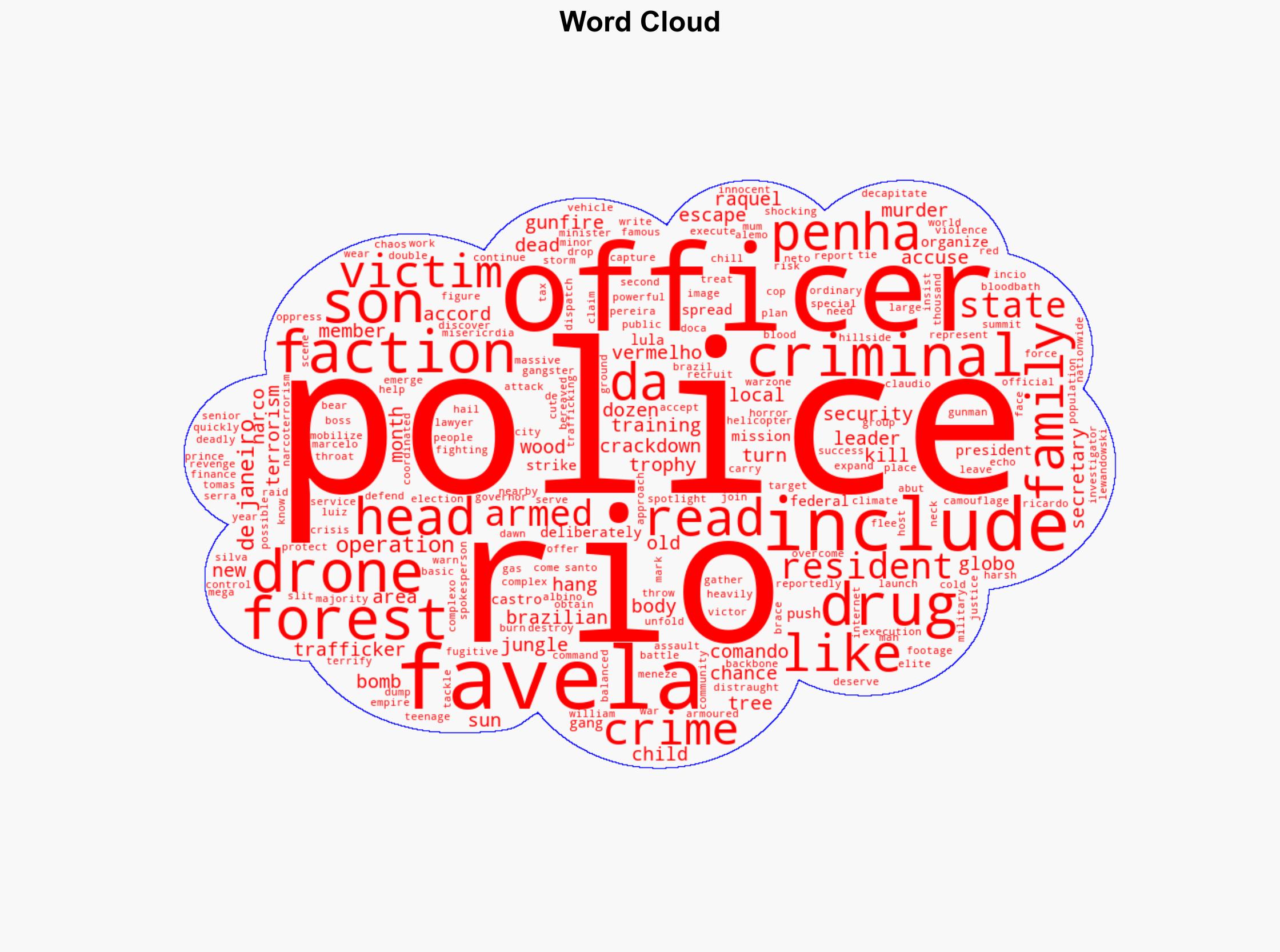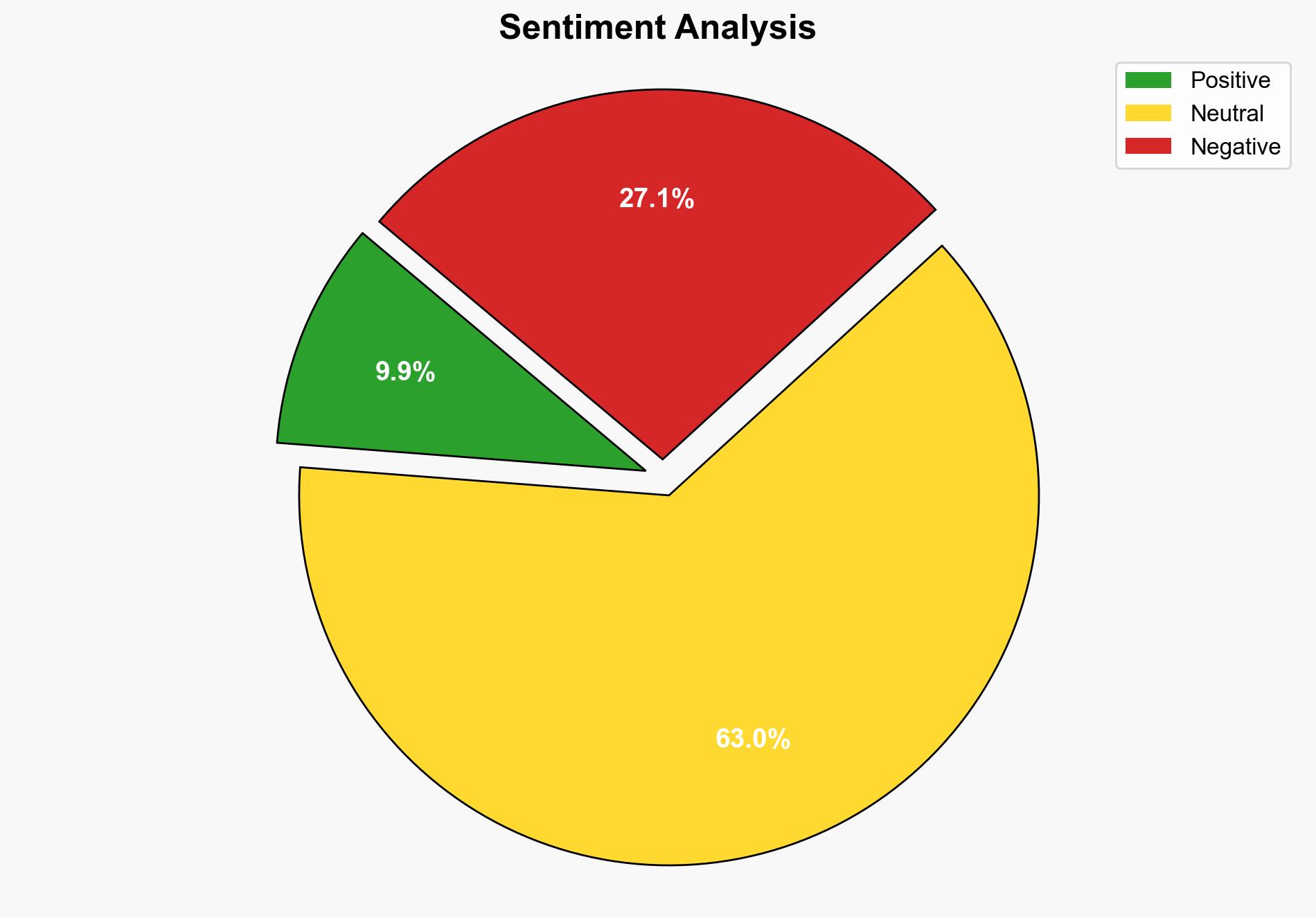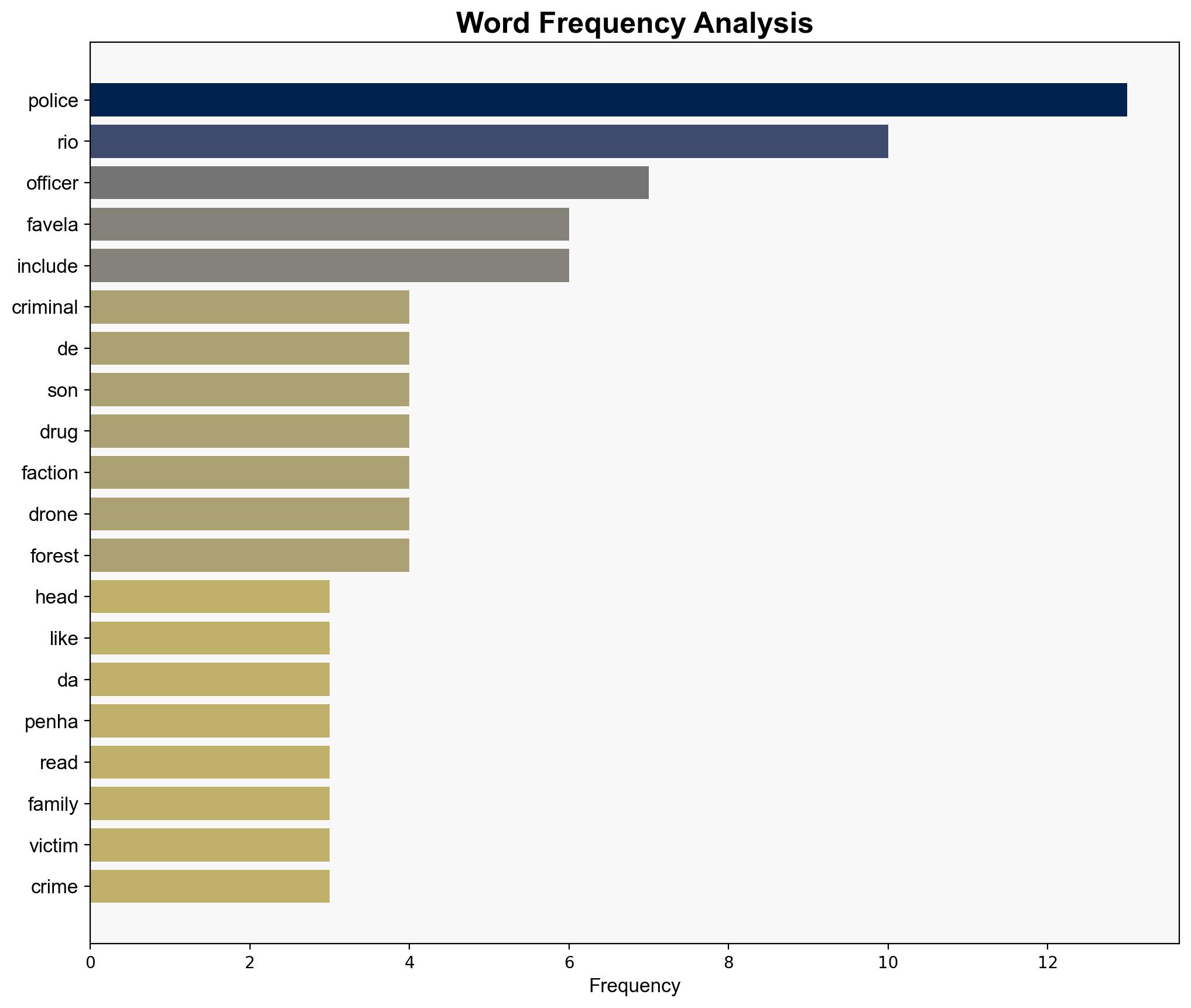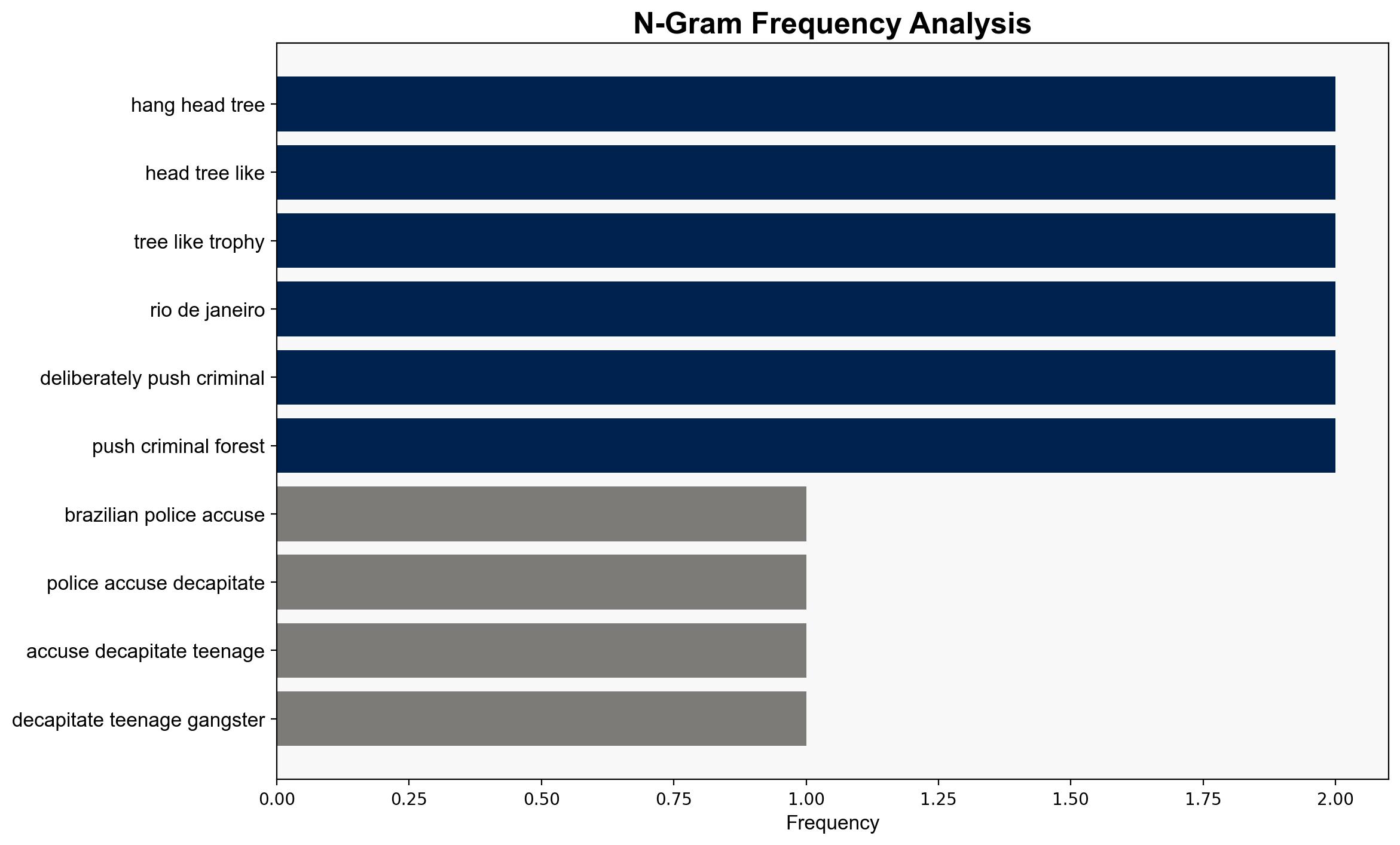Slum war erupts – The-sun.com
Published on: 2025-10-30
Intelligence Report: Slum war erupts – The-sun.com
1. BLUF (Bottom Line Up Front)
The situation in Rio de Janeiro’s favelas represents a significant escalation in narco-terrorism, with potential implications for regional stability and international relations. The most supported hypothesis suggests that the police operations are a strategic attempt to dismantle powerful drug factions, but they risk exacerbating violence and civilian casualties. Confidence level: Moderate. Recommended action: Enhance intelligence-sharing and coordination between federal and local authorities to minimize collateral damage and prevent further escalation.
2. Competing Hypotheses
Hypothesis 1: The police operations are a necessary and strategic response to dismantle the Comando Vermelho’s control over the favelas, aiming to restore law and order in Rio de Janeiro. This hypothesis is supported by the scale of the operation and the involvement of elite forces, suggesting a planned and targeted approach to counter narco-terrorism.
Hypothesis 2: The police operations are primarily reactionary, driven by political pressure and the upcoming international climate summit, with limited strategic foresight. This hypothesis is supported by the timing of the operations and the high civilian casualties, indicating potential mismanagement and lack of coordination.
3. Key Assumptions and Red Flags
– Assumptions for Hypothesis 1 include the belief that the police have sufficient intelligence and resources to effectively dismantle the Comando Vermelho.
– Assumptions for Hypothesis 2 include the notion that political motivations are influencing operational decisions, potentially leading to rushed and poorly planned actions.
– Red flags include the high number of civilian casualties and reports of police brutality, which may undermine public trust and lead to increased support for criminal factions.
– Inconsistent data regarding the actual impact on the Comando Vermelho’s operational capabilities.
4. Implications and Strategic Risks
– The continuation of such operations without strategic oversight could lead to a humanitarian crisis, with increased displacement and civilian casualties.
– Potential for retaliatory attacks by drug factions, escalating violence in urban areas.
– Economic implications include potential disruptions to local economies and increased costs for law enforcement and public security.
– Geopolitical risks involve international scrutiny and potential diplomatic tensions, especially with the upcoming climate summit.
5. Recommendations and Outlook
- Enhance intelligence-sharing between federal and local authorities to improve operational planning and execution.
- Implement community engagement initiatives to rebuild trust and gather grassroots intelligence.
- Scenario-based projections:
- Best Case: Successful dismantling of drug factions with minimal civilian impact, leading to improved security and economic conditions.
- Worst Case: Escalation of violence and civilian casualties, leading to international condemnation and potential sanctions.
- Most Likely: Continued sporadic violence with gradual improvement in security as operations become more coordinated.
6. Key Individuals and Entities
– Raquel Tomas (mother of a victim)
– Albino Pereira Neto (lawyer for bereaved families)
– Victor Santo (Rio Secretary of Public Security)
– Marcelo de Meneze (Military Police Secretary)
– Claudio Castro (Governor)
– Luiz Inácio Lula da Silva (President)
– Ricardo Lewandowski (Justice Minister)
– Comando Vermelho (drug faction)
7. Thematic Tags
national security threats, counter-terrorism, regional focus, law enforcement, drug trafficking




